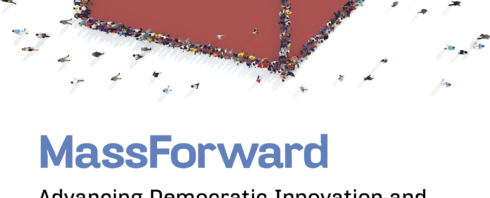(DCA) Yesterday at the “Future of Civics” event presented by The Atlantic and the Stavros Niarchos Foundation Agora Institute at Johns Hopkins University, I got to hear Paul Finkelman present the same argument he had made recently in The Atlantic under the heading, “Baseball is a Civics Education.”
Baseball, Finkelman says, is “a wonderful example of a functioning legal system, one that teaches the millions of Americans who play or watch it fundamental principles of American law and constitutional theory.”
Finkelman analogizes baseball to law, meaning primarily the judicial process. It was only the headline writer who called baseball a “Civics Education.” That raised the stakes, because civics is about much more than law. Civics is also about partisan politics, social movements, social capital, identities, ideologies, and a range of other issues that look much less like baseball.
Still, I have made analogies between games and politics (why learn game theory?; work and play and civic life). As Finkelman argues, baseball is rule-guided. It channels individual and group competition into an event that serves a larger public; ambition is harnessed for the public good. The rules are explicit but have evolved (informally as well as formally) and are interpreted by human umpires who are trained to be neutral. In addition to explicit rules and penalties, baseball depends on norms.
These are some similarities between baseball and some desirable aspects of politics. On the other hand, politics is not only about who plays better. It’s primarily about ideas, decisions, or policies. To the extent that better play determines the outcome, a political or legal system (unlike a game) is flawed.
In democratic politics and in a jury room, the audience doesn’t just watch; they decide the outcome. And their decision is not about who did a better job, but what about is most true or just. That is a high ideal; in reality, we also decide what will serve our own interests. That is both inevitable and also justifiable, within limits. Politics is an instrument for obtaining the ends we want.
In baseball, the identities of the two teams are sharply defined and are fixed for the duration of the game. In politics, one of the important dynamics is the ability of players to choose and change identities. Baseball is a two-team sport, but even in the dysfunctional partisan duopoly of US partisan politics, there are many more than two teams on the field at a time. And players are constantly changing sides. There is (or should be) no sharp distinction between the audience and the players. Everyone plays. Even apathy has an effect.
Competing baseball teams may be unequal in the sense that one team has better players. But they have the same number of players, opportunities at bat, and other basic resources. In contrast, politics is always unequal, often brutally so. That often makes the game less enjoyable to watch, but nobody designed politics for the audience’s appreciation. It is a manifestation of power.
Most importantly, the stakes are different. Baseball is about who wins. Politics is about who pays or receives, prospers or suffers, lives or dies.
I can see the pedagogical value of analogizing politics and baseball. The sport teaches certain values that are worthy in civic life, such as rule-of-law, fair play, and the value of the opponent. But baseball and other games also differ from politics, and we risk mis-educating people if we drive the analogy too far.

